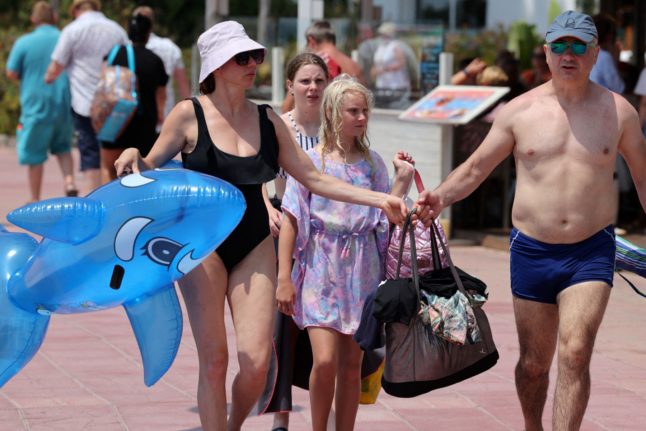If you’re a British “expat” who follows the UK press, you’re presumably “furious” about the “EU’s new post-Brexit travel rules”, which ban you from spending more than three months in your European holiday home from January 2021. At least, that’s what the ‘Daily Mail’ suggests. In that particular publication, a bit of outrage and EU-bashing never go amiss.
Furious British expats blast EU's new post-Brexit travel rules https://t.co/N3eIQWkv1j
— Daily Mail U.K. (@DailyMailUK) November 30, 2020
Personally, I hate the term “expat”, as it confers an unwarranted and unwelcome status on to Brits. We are immigrants – no better or different to EU citizens living and working in the UK. I understand, however, that journalists use the term as shorthand for “British citizens living abroad”, which is a bit of a mouthful.
I’m not disputing that “expat” second-home owners are furious. I expect they are also worried, confused and saddened by the “news”. After all, there’s ample cause for concern.
However, the changes to our rights aren’t down to “new post-Brexit travel rules”. Yes, this is a result of Brexit but, no, it’s not new. The same rules have always applied to non-EU citizens, moving around as third country nationals.
We were fortunate to enjoy special rights that waived this rule. Brexit takes those benefits away. Countries that aren’t members of the EU club cannot expect exclusive membership rewards. Without the EU changing anything, Britain has chosen to put itself in a different category.
The ‘Daily Mail’ says that a 90-day stay means anyone visiting any EU country cannot return for a further three months. It’s actually worse than that, as the rule doesn’t apply to just one country, but the entire EU bloc.
So, once a 90-day allowance in a 180-day period has been spent, you cannot return to your holiday home in Spain, France, or travel anywhere in the EU.
Say goodbye to that romantic weekend break to Rome or Paris. While you can enter the Schengen area more than once in the 90 days, official guidance from the EU says “you must carefully calculate your days of stay as the overall period of stay must not exceed the overall total of 90 days of stay within any 180-days period”.

Photo: AFP
Hard luck on the “swallows” that like to spend all winter in the Spanish sun. They will find themselves returning to cold Britannia sooner than intended.
The ramifications of overstaying in Europe could be serious. Post-Brexit, British passports will be scanned on arrival and departure. Anyone caught “illegally present”, staying longer than permitted, risks an “over-stay flag” on their passport. This could lead to a fine, difficulties applying for any future visa, or even a re-entry ban.
As more details emerge re our lost rights, blame has frequently been levelled at the “vindictive” EU. Spin abounds concerning “rules brought in to punish the Brits” when, really, it is standard third country national rules being applied.
The Leave campaign sold the lie that “nothing would change”, and many Brits assumed the UK could negotiate the parts of EU membership it liked and ditch the rest. Compliance with third country national rules didn’t register on voter consciousness. To allow British citizens special rights after Brexit would be unfair to other third countries – and in many cases, illegal.
Anger exists at the dawning realisation of what we will lose. For some people, late awareness has been a real shock. For those of us that have been pointing all this out for the last four years, it is incredibly frustrating. We’ve been accused of “project fear” and told repeatedly that Brexiters knew what they were voting for. I’m not sure that was ever true, but they’re getting the idea now!
Why any British citizens living in Spain – under or over the radar – voted for Brexit is still difficult for me to fathom. It’s hard to think of a better definition of “turkeys voting for Christmas”.
I have some sympathy for second-home owners who are “furious” about the effect of Brexit on their lives. I empathise with anyone who stands to lose something they value, for no good reason and through no fault of their own.
However, those with second homes will merely have their European visits cut short. Brits in the UK on lower incomes may be deprived of their European visits altogether, and that could mean us seeing less of our families.
Regardless of your financial status, Brexit will make us all poorer, and that’s not the EU’s fault. No, it is entirely the fault of the charlatans who sold the British public a lie. Perhaps ‘Daily Mail’ editors and readers could be “furious” about that instead.
By Sue Wilson – Chair of Bremain in Spain

READ MORE:



 Please whitelist us to continue reading.
Please whitelist us to continue reading.
Nicely explained Sue! Hopefully people will read this and stop blaming Spain or the EU or anybody other than the Tory government and those who voted for them!
Is the ‘Daily Mail’ correct in stating that a 90-day stay means anyone
visiting any EU country cannot return for a further three months?
Although the rule doesn’t apply to just one country, does it apply
to the ENTIRE EU bloc or just the Schengen zone?
The example is Ireland. Many people will spend over 180 days a year
in each of UK and Irish republic. Will days in the republic count
against allowed days in Spain or vice versa? Obviously not – as there
is no mechanism to monitor cross-border transits in Ireland. However
this would seem to counter the assertion that the 180-day limit applies
to “visiting any EU country”
Is there official clarification on this?